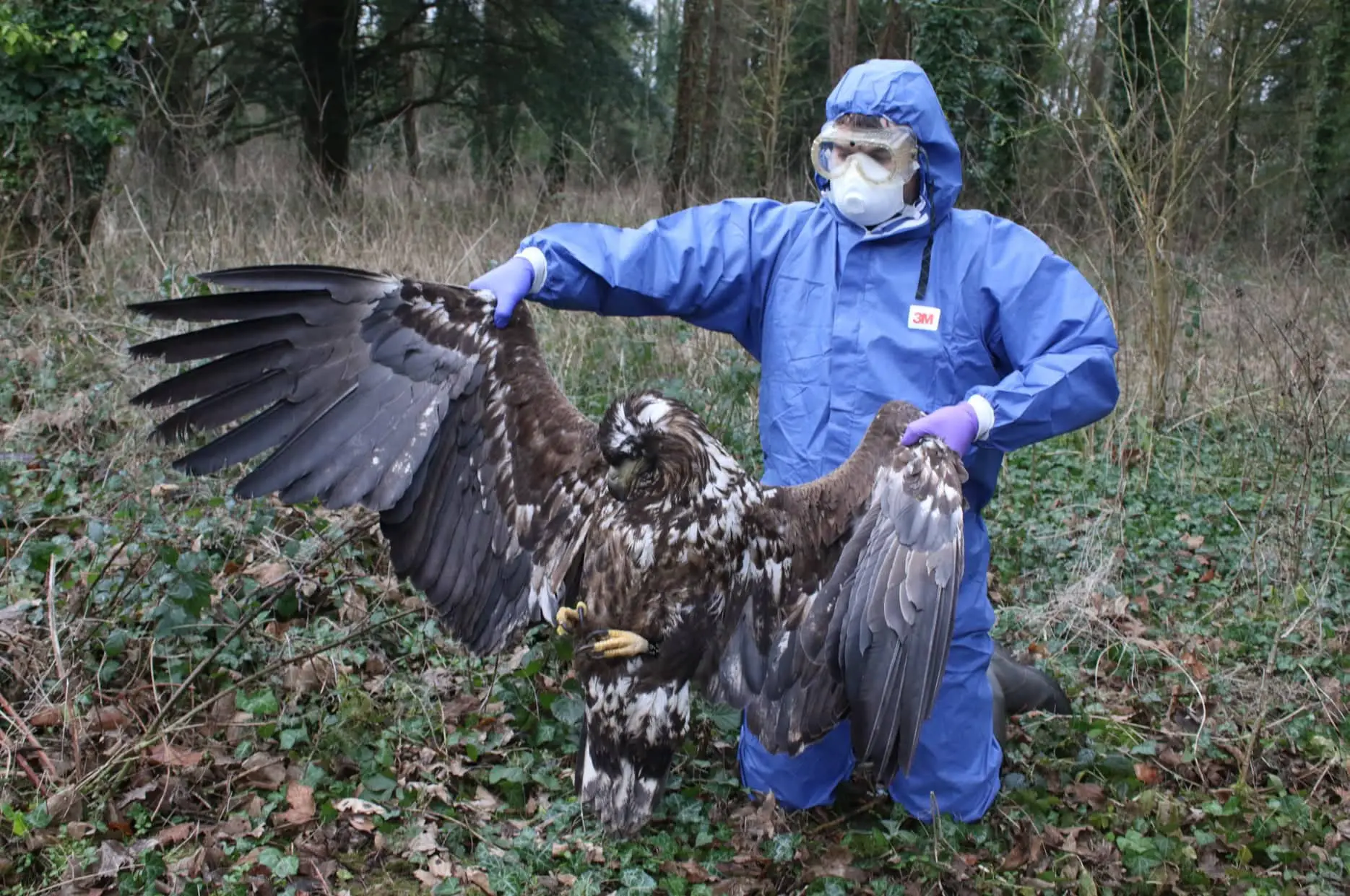Dorset Police have been criticised for prematurely closing the investigation into the death of a White-tailed Eagle from the Isle of Wight that was found in Dorset earlier this year.
Investigators for Dorset Police said that because tests carried out on the bird were inconclusive, they were unable to determine whether any criminal offence had been committed.
They did state that high levels of brodifacoum (rodent poison) were detected but it was not been possible to determine whether this was a deliberate act or a secondary rodenticide poisoning.
RSPB: Rodent poison killed the eagle
Katie-Jo Luxton, RSPB Global Conservation Director, told News OnTheWight,
“We are completely baffled by the decision taken by Dorset Police to end the white-tailed eagle investigation so prematurely. Brodifacoum – the rodent poison that killed the eagle – is highly toxic and it is clear that it was being used either incompetently or with intent to kill raptors. Either way, this is an illegal act.
“A thorough land search had been planned on the estate in question, to look for evidence such as poison baits or misuse, but that was recently and unexpectedly called off. The investigation has not been closed by the Health and Safety Executive but that has now been made defunct by the police communication.
“We seek assurance from Dorset Police that their wildlife crime remit is still operational and that other significant ongoing raptor persecution investigations are fully investigated ‘without fear or favour’ as per Police Oath.”
Controversial view
The MP for West Dorset, Chris Loder, caused outrage earlier this year when he said the eagles were not welcome in his constituency and implied the Police should not be investigating the deaths.
House of Lords
Green Party politician, Natalie Bennett, tweeted that she would be tabling a written question in House of Lords this afternoon.
Reintroduction programme
The birds were released on the Isle of Wight as part of a five-year programme to restore this lost species, led by Forestry England and the Roy Dennis Wildlife Foundation.
The Isle of Wight was chosen as the location to reintroduce the White-tailed Eagles, also known as Sea Eagles, as it offers an ideal habitat for these coastal loving birds.
25 birds released
The first three pairs of juvenile white-tailed eagles were released on the Isle of Wight in August 2019.
In summer 2020, seven more were released and in 2021, another 12 were released on the Island.
Find out more
You can follow the journeys of these majestic birds on Twitter through the Roy Dennis Wildlife Foundation account or the Forestry England account.
Article edit
10.25am 30th Mar 2022 – Longer quote from RSPB added
Source: Guardian
Image: © Dorset Police





